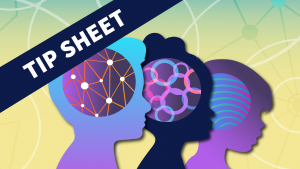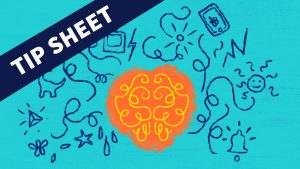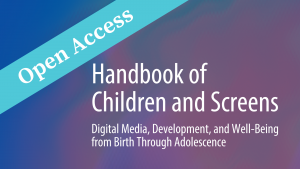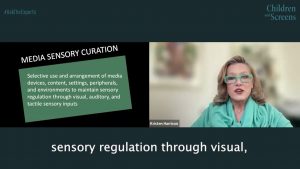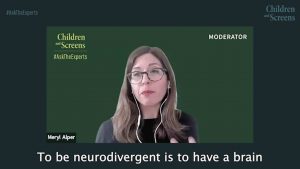
Meryl Alper, PhD (Associate Professor of Communication Studies, Northeastern University), breaks down key insights on neurodiversity–including opportunities for connection and the unique challenges neurodivergent individuals may face–at the #AskTheExperts webinar “Nurturing the Neurodivergent: Unique Considerations for Youth Screen Use” on February 6, 2024.
Read the Video Transcript
[Dr. Meryl Alper] So neurodiversity is a term that was coined by autistic sociologist Judy Singer in 1998 that essentially means that neurological differences are authentic forms of human diversity, not a deficit. The concept provides individuals with similar neurological differences with an identity to coalesce around, which is really important considering the bias, discrimination, and exclusion that they may face. At the same time, those differences can require very specific forms of support–be they social, emotional, or medical–for individuals to live their best lives. To be neurodivergent is to have a brain that functions in ways that significantly diverge from dominant societal standards, and to be neurotypical, which I myself do identify as, is to have one that conforms to those societal standards. This means, then, that who is neurodivergent or neurotypical is heavily shaped by context, interactions, and situations.
View the Full Webinar
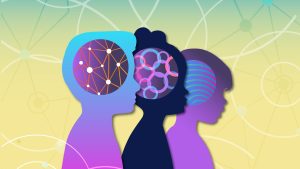
Nurturing the Neurodivergent: Unique Considerations for Youth Screen Use
What should parents and caregivers know about the unique risks and opportunities for neurodivergent youth when introducing and monitoring the use of digital media?
Meryl Alper, PhD
Associate Professor of Communication Studies, Northeastern University
Abigail Phillips, MLIS, SLIS, PhD
Assistant Professor, School of Information Studies, University of Wisconsin-Milwaukee
Annuska Zolyomi, PhD
Assistant Professor of Computing and Software Systems, University of Washington Bothell
Kristen Harrison, PhD
Richard Cole Eminent Professor, Hussman School of Journalism and Media, University of North Carolina
LaChan Hannon, PhD
Director of Teacher Preparation and Innovation, Department of Urban Education, Rutgers University Newark; Co-founder, Greater Expectations Teaching and Advocacy Center Inc
